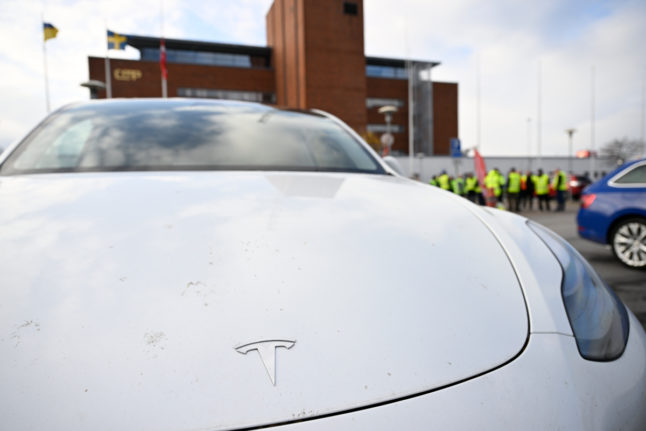Some 130 mechanics at 10 Tesla repair shops in seven cities across Sweden first walked off the job on October 27th, according to trade union IF Metall.
The strike has since been expanded to include other repair shops that service Tesla among other car brands, and dock workers have stopped unloading Tesla cars at all Swedish ports.
On Monday, the Swedish Union for Service and Communications Employees (Seko), said it had started blocking deliveries and pickups of mail and packages via postal companies PostNord and CityMail at all Tesla workplaces in Sweden.
This meant spare parts and components would not be delivered to Tesla sites, according to the union.
“By refusing to play by the rules here in Sweden Tesla is trying to gain a competitive advantage by giving workers worse wages and conditions than they would have had with a collective agreement,” Seko president Gabriella Lavecchia said in a statement.
Negotiated sector-by-sector, collective agreements are the basis of the Swedish labour market model, covering almost 90 percent of all Swedish employees and guaranteeing standard wages and working conditions.
In late October, IF Metall – which has some 300,000 members – told AFP that “many” of Tesla’s workers in Sweden are members of IF Metall, but would not disclose an exact number.
According to IF Metall, Tesla had told them it would not sign a collective bargaining agreement because they “don’t do that anywhere in the world.”
In addition to IF Metall, nine other unions have announced “sympathy measures”, including the Swedish Building Workers’ Union announcing last week it would stop servicing and repairs on Tesla facilities as of November 28th.
Despite this, several Swedish media have reported that the impact of the strike has so far been limited, and IF Metall has accused the electric carmaker of systematically using strike breakers to circumvent the strike.
Tesla has also found other ways to deliver new cars to Sweden, notably by road.



 Please whitelist us to continue reading.
Please whitelist us to continue reading.
Member comments